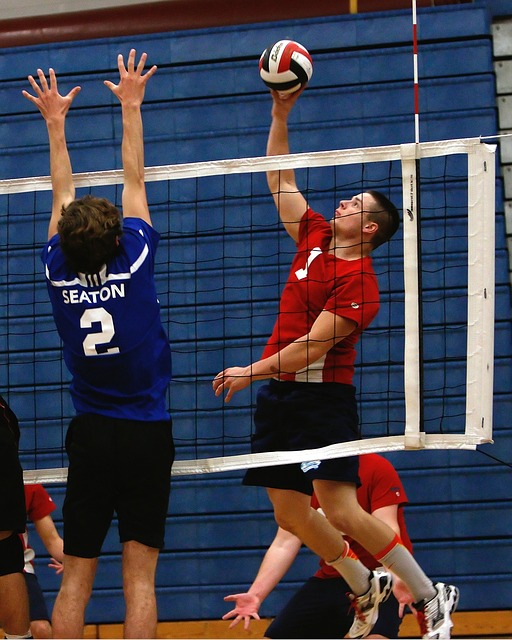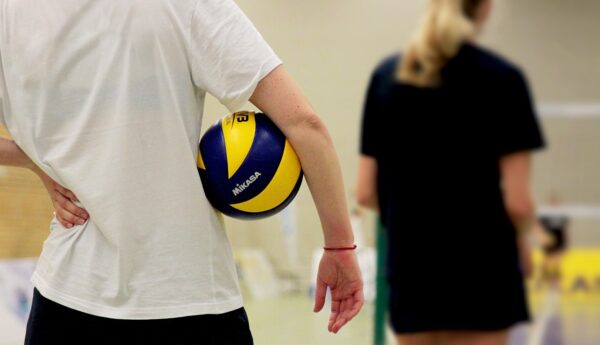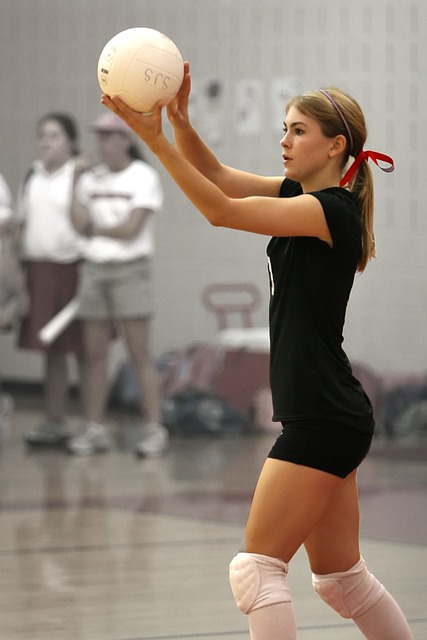Introduction
Volleyball, a sport beloved for its fast-paced action and thrilling rallies, often sparks curiosity among those considering taking it up. One of the common questions that arise is whether volleyball is easy to learn. “It’s totally understandable, especially if you’re just starting out and feeling excited about getting into sports. So, in this article, we’ll take a closer look at volleyball and answer the question: Is volleyball easy to learn?”
Is Volleyball Easy To Learn?
Whether volleyball is easy to learn depends on various factors, including an individual’s physical abilities, coordination, and prior experience with similar sports.
Generally, volleyball can be considered relatively easy to learn compared to some other sports due to its simple rules and straightforward gameplay. However, mastering the skills and techniques required to excel in volleyball, such as serving, passing, setting, spiking, and blocking, can take time and practice.
Additionally, understanding and implementing strategies and teamwork effectively also contribute to one’s proficiency in the sport. With dedication, patience, and proper guidance, many people find volleyball enjoyable to learn and play.

Learn The Basics of Volleyball
Learning the basics of volleyball is essential for beginners because it provides a solid foundation for mastering more advanced skills. Understanding fundamental techniques such as serving, passing, setting, and hitting lays the groundwork for effective gameplay. Additionally, knowing the rules and positions helps players participate fully and contribute to their team’s success. Without grasping these basics, beginners may struggle to perform well or enjoy the game to its fullest potential.
Breaking Down the Learning Curve
At first glance, volleyball might seem straightforward, with its simple rules and minimal equipment requirements. However, delving deeper reveals the intricacies involved in mastering the sport:
Fundamental Skills
While the basic skills of volleyball—such as serving, passing, setting, attacking, and blocking—may appear simple, executing them effectively demands precision, coordination, and timing. Beginners often struggle initially to develop these skills to a proficient level.
Physical Demands
Volleyball is physically demanding, requiring agility, speed, strength, and endurance. From explosive jumps for attacking and blocking to quick lateral movements for defense, players must possess a well-rounded athletic ability to excel in the sport.
Strategy and Tactics
Beyond individual skills, volleyball entails strategic thinking and tactical awareness. Teams need to be flexible with their gameplay, adjusting their tactics depending on the situation. This means using different offensive and defensive strategies to outsmart the other team.
Figuring out what moves the opposing team might make, finding and exploiting their weaknesses, and being able to change tactics quickly during the game all make things more challenging.
Team Dynamics
Volleyball is a quintessential team sport, emphasizing communication, collaboration, and synergy among players. Understanding positional play, reading your teammates’ movements, and anticipating the opponent’s actions are crucial aspects that require time and practice to grasp fully.

Overcoming Challenges Through Practice
While volleyball may present challenges to newcomers, it’s essential to recognize that proficiency comes with dedication and practice. Here are some tips for beginners looking to navigate the learning curve:
Start with the Basics
Focus on mastering the fundamental skills of volleyball, such as serving, passing, and setting, before progressing to more advanced techniques.
Seek Guidance
Utilize resources such as instructional videos, coaching clinics, or joining a local volleyball club to receive guidance from experienced players and coaches.
Practice Regularly
Consistent practice is key to improvement. Set aside time to hone your skills, both individually and as part of a team, to build confidence and proficiency.
Stay Patient and Persistent
Rome wasn’t built in a day, and neither is volleyball expertise. Embrace setbacks as learning opportunities, and maintain a positive attitude throughout your journey.
Conclusion
In conclusion, while volleyball may pose initial challenges to beginners, it is by no means insurmountable. With the right mindset, dedication, and perseverance, anyone can learn to play volleyball proficiently. Rather than focusing on whether volleyball is easy to learn, embrace the journey of improvement and growth that the sport offers.
So, if you’re considering taking up volleyball, remember: the road may be challenging, but the rewards of mastering this exhilarating sport are undoubtedly worth the effort.
How can I learn volleyball fast?
To learn volleyball quickly, focus on mastering the basic skills such as serving, passing, setting, and hitting. Find opportunities to practice regularly, whether it’s through drills, playing games, or joining a team. Watch instructional videos, seek guidance from experienced players or coaches, and don’t be afraid to make mistakes—they’re part of the learning process. Lastly, stay committed, stay patient, and keep refining your techniques to improve steadily over time.
Can I learn volleyball by myself?
While it’s possible to practice volleyball alone to some extent, it’s more effective to learn with others. Solo practice can help with skills like serving or setting against a wall, but learning game dynamics, timing, and teamwork are best done with partners or teams. Joining a club, attending clinics, or finding a mentor/coach can provide valuable guidance and opportunities for improvement. Additionally, playing with others allows you to adapt to different playing styles and gain essential game experience.
What is the hardest skill to learn in volleyball?
The hardest skill to learn in volleyball varies for each player, but many find mastering the art of consistent and precise setting to be particularly challenging. Setting requires precise hand placement, timing, and coordination to deliver accurate passes to teammates, making it a skill that demands both physical and mental finesse.
Can everyone play volleyball?
Yes, in principle, anyone can play volleyball regardless of age, gender, or physical ability. Volleyball can be adapted to accommodate different skill levels and physical capabilities, making it accessible to a wide range of people. Whether casually at the beach or competitively in organized leagues, volleyball offers opportunities for enjoyment and participation for everyone.
How should a beginner start playing volleyball?
A beginner should start playing volleyball by familiarizing themselves with the basic rules and techniques, practicing fundamental skills such as passing, setting, and serving, joining a local recreational league or club, and seeking guidance from experienced players or coaches. Consistent practice and patience are key to improving in the sport.
